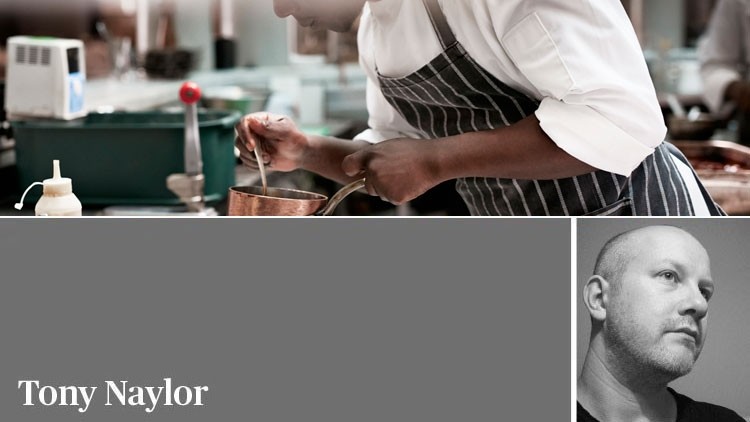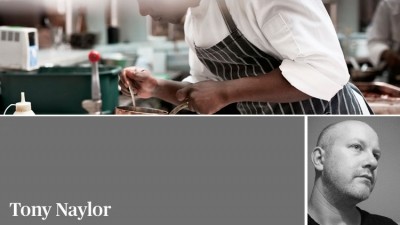Why it's time to resolve the hospitality industry's pay dispute

Is Ernst Van Zyl asking the earth? The former chef-owner at Cheshire’s Good Food Guide-listed Lord Clyde pub, where he held three AA rosettes, is currently looking for a full-time head chef position. But Van Zyl is dismayed by the salaries commonly offered.
Late in 2018, he tweeted about one £30,000 vacancy. Based on a 40-hour week, it is a good wage, says Van Zyl (the average UK salary is £27,271). But what head chef works 40? Realistically, in this era of staff shortages and stretched teams, a ‘fire-fighting’ head chef will work 60 hours a week, by which time the job’s notional hourly rate drops from £14.42 to £9.61. “No wonder every chef is joining agencies or leaving the industry,” his tweet concluded.
“For a skilled person with so much responsibility, it’s close to minimum wage, which is wrong,” Van Zyl told me, later. “Head chefs are undervalued as a skilled profession. It took me 10 years before I applied for my first head chef position. Twelve years on, salaries haven’t moved on.”
The reaction to Van Zyl’s tweet was fascinating. Several chefs who have or are desperate to leave the industry, agreed with him. But other insiders were indignant. Van Zyl was criticised for breaking a salary package (which includes sick/holiday pay, pension, tips, etc), into an hourly rate, and by those who think egotistical chefs are demanding unrealistic wages.
Chefs who see cooking as a vocation, scoffed. This is about passion, not pay, they argued. Dedicated chefs work long hours because they love it.
I find those last two points baffling. As it is currently constituted, the restaurant industry is, effectively, subsidised by senior staff enduring insanely long hours for average wages. It is a dysfunctional business model in need of urgent reform. Whisper it, but (in the indie sector), menu prices must go up, concepts need to be redesigned and, potentially, a streamlined industry will emerge consisting of fewer restaurants serving a smaller client base, but on a more sustainable footing that prioritises better working conditions.
Secondly, we must challenge this romantic myth – part machismo, part masochism – that attaches itself to cheffing. It is a creative job. For a minority, it becomes an all-consuming obsession. Some chefs choose to work longer hours. But not everyone has that zeal. That should not be the industry standard and overtime should be paid. Each year, thousands of capable, rigorous chefs leave the industry or sign-on for agency work. They are not weak. They are not amateurs. They are, merely, trying to reclaim some sort of work-life balance or, if they must work 60 hours a week, ensuring they get paid for all 60.
Operators and industry bodies often insist that salary plays little part in attracting talent. Yet a recent caterer.com survey of 21,000 global hospitality employees found that 65% plan to move jobs soon. Better pay was the second most popular reason for changing roles, topped only by a desire for swifter ‘career progression’. Which is surely just a euphemism for a higher salary?
Bluntly, hospitality is an industry with a poor image problem, facing a dire recruitment crisis which, in a severe case of magical thinking, refuses to acknowledge the role salaries play in that. The least it could do is begin to demonstrate that it values senior staff. As Van Zyl says, restaurants need to see head chefs as “assets and investments in their business, instead of just a figure on a page”.
“I really don’t think I’m wrong to expect a salary that matches the knowledge and experience I bring to the table,” he adds. Nor do I.
This column first appeared in the January 2019 issue of Restaurant magazine, the leading title for the UK's restaurant industry. For more features, comment, interviews and in-depth analysis of the sector subscribe to Restaurant magazine here. Follow Tony on Twitter @naylor_tony


























